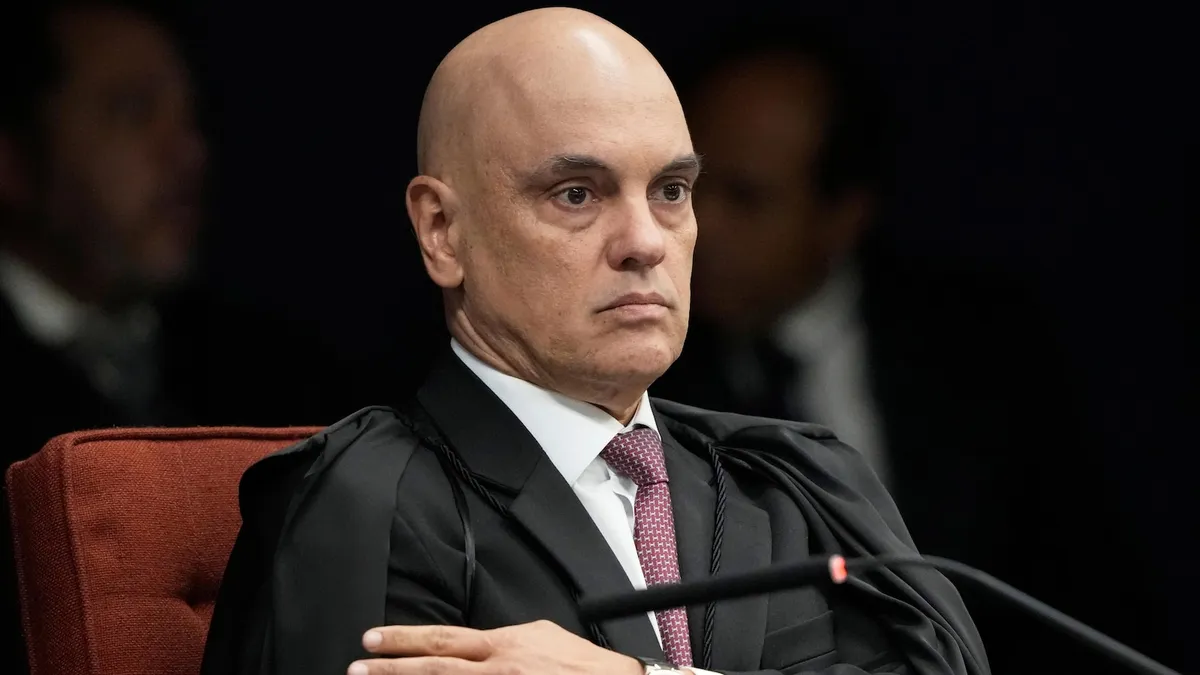
In a landmark ruling on Thursday, a panel of Brazilian Supreme Court justices sentenced former president Jair Bolsonaro to 27 years and three months in prison. This conviction stems from charges related to his attempts to stage a coup in a bid to remain in power following his electoral defeat in 2022. Currently, Bolsonaro is under house arrest in Brasilia, but he has the right to appeal the sentence.
Of the five justices on the panel, four found the far-right politician guilty on five counts. The two latest justices to rule, Cármen Lúcia and Cristiano Zanin, joined their colleagues in condemning Bolsonaro, while justice Luiz Fux dissented, arguing for his acquittal. This ruling is expected to deepen political divisions in Brazil and could elicit a backlash from the United States government.
Following the verdict, U.S. President Donald Trump expressed his dissatisfaction, stating that he was “very unhappy” with the conviction. Speaking to reporters, Trump described Bolsonaro as “outstanding” and claimed that the conviction was “very bad for Brazil.”
Bolsonaro's legal team has announced plans to appeal the verdict to the full Supreme Court, which comprises 11 justices. The former president, who has consistently denied any wrongdoing, is now the first former Brazilian president to be convicted of attempting a coup. He did not attend the court proceedings on Thursday, and was only seen briefly at his residence.
Justice Lúcia emphasized the weight of the evidence presented by the Attorney General's Office, asserting that Bolsonaro was “the instigator and leader” of a coordinated effort to maintain or seize power. The trial has captured the attention of a divided Brazilian society, with some citizens supporting the legal actions against Bolsonaro, while others rally in defense of the far-right leader, claiming political persecution.
The trial gained renewed attention when Trump linked a potential 50% tariff on imported Brazilian goods to Bolsonaro’s legal situation, calling it a “witch hunt.” Observers suggest that the U.S. may impose new sanctions on Brazil in the wake of the trial, further straining already fragile diplomatic relations.
Justice Alexandre de Moraes, who is overseeing the case, characterized Bolsonaro as the leader of a coup plot and a criminal organization. Meanwhile, Bolsonaro’s son, lawmaker Eduardo Bolsonaro, took to social media to advocate for his father's amnesty, neglecting to mention the conviction itself. “It is time to do nothing less than what is correct, just,” he stated.
Earlier on Thursday, Justice Lúcia voted to convict Bolsonaro of organized crime concerning the alleged coup attempt. She permitted de Moraes to present videos of Bolsonaro addressing thousands of supporters between 2021 and 2023, where he encouraged protests against the Supreme Court. Additionally, de Moraes displayed footage of the destruction that occurred during the riots on January 8, 2023.
Bolsonaro faced multiple charges, including attempting to stage a coup, being part of an armed criminal organization, and threatening the democratic rule of law. In a pre-trial interview, current President Luiz Inacio Lula da Silva highlighted the substantial evidence against Bolsonaro, stating, “Bolsonaro attempted a coup in this country, and there is hundreds of pieces of evidence.”
Despite his ongoing legal challenges, Bolsonaro remains a formidable figure in Brazilian politics. Previously banned from running for office until 2030 in a separate case, he is expected to identify a political heir to challenge President Lula in the upcoming elections. The ruling may prompt Bolsonaro’s allies in Congress to pursue amnesty for him.
As the political landscape shifts in Brazil, the implications of this ruling will undoubtedly resonate beyond its borders, affecting international relations and domestic stability. The former first lady, Michelle Bolsonaro, expressed her sentiments on social media, emphasizing a belief in divine justice, stating, “There is a God in heaven who sees everything, who loves justice and hates iniquity.”